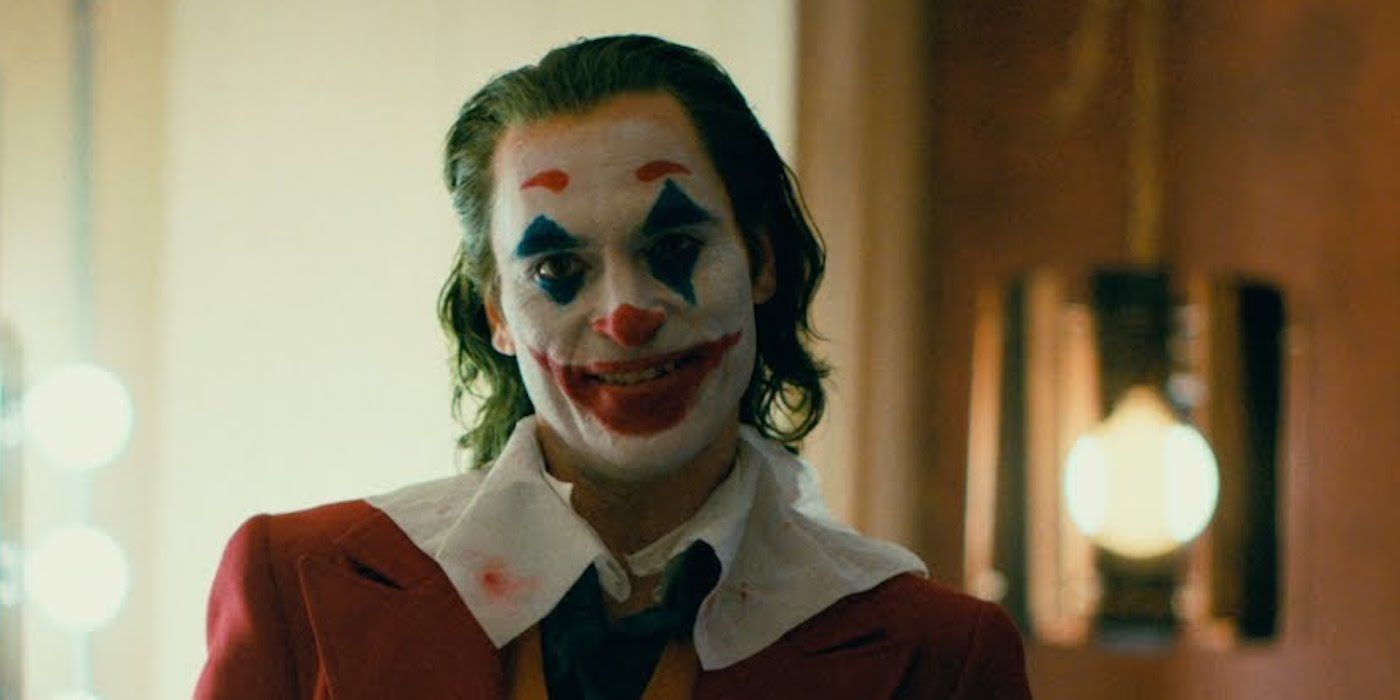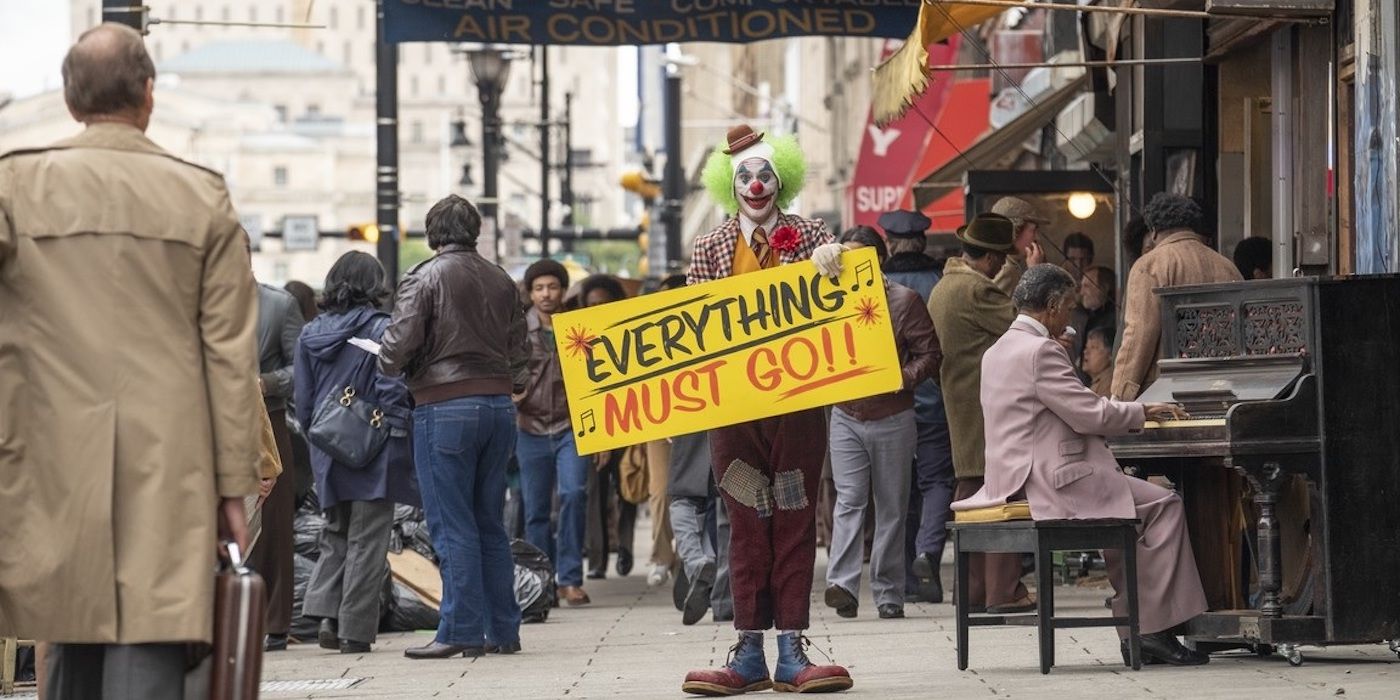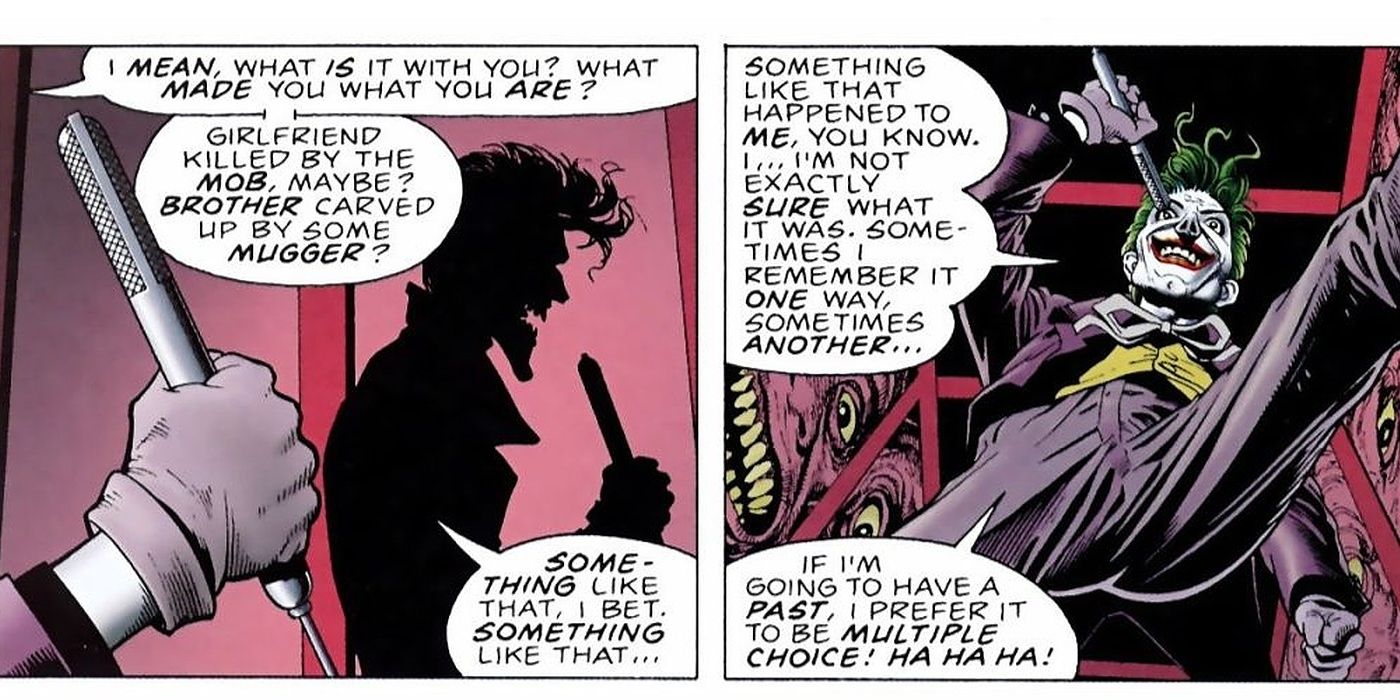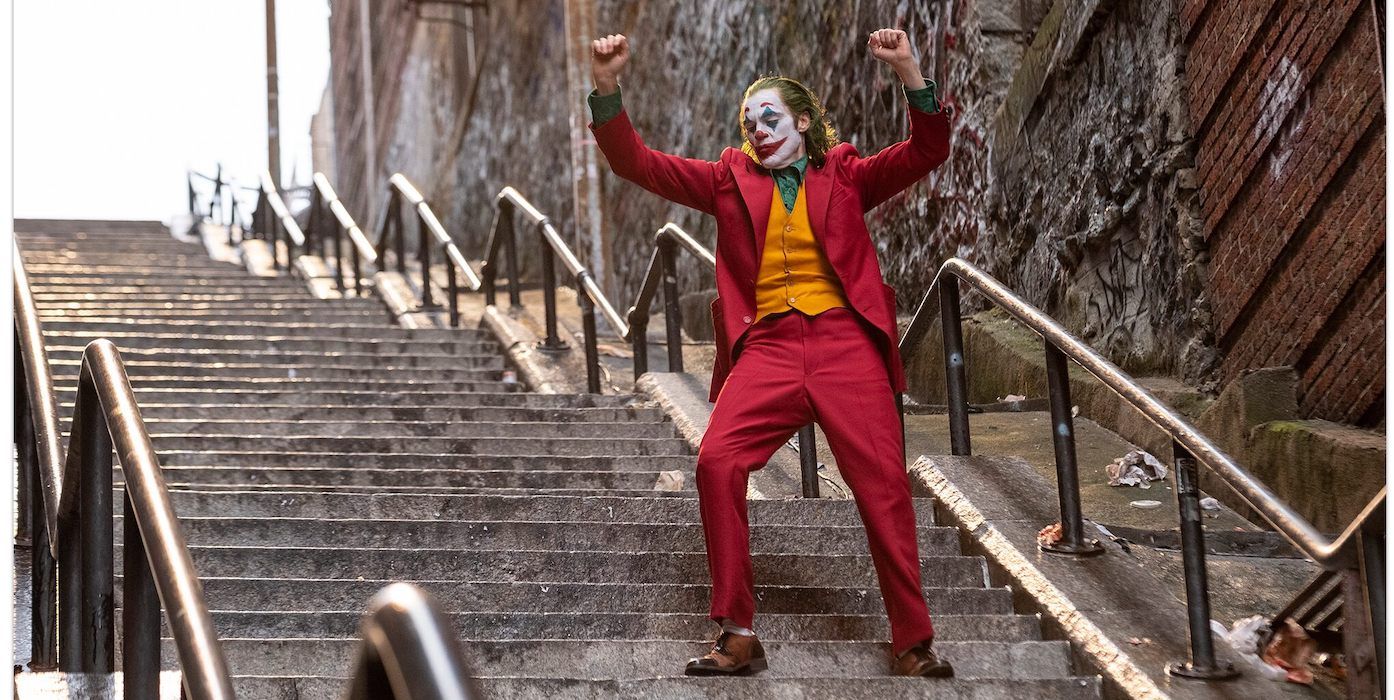WARNING: The following contains spoilers for director Todd Phillips' Joker, in theaters now.
In the weeks leading up to its record-breaking release, Joker spurred on an entire cultural debate in the weeks leading up to its release. People questioned the motives behind making the film, as well as the overall fear it generated in the process. But one of the inherent problems with taking the film too seriously is the question of whether or not the titular character should be taken so seriously.
The controversy and debate around the Joker as a character somewhat loses sight of the fact that the Joker is, at his core, an unreliable character within any narrative featuring him. For a character who made the phrase "Why so serious?" famous in Dark Knight, why do audiences still take the character at his word?
Across various incarnations, the Joker has been established as someone who can't pin down the truth. He openly admits as much in comics such as The Killing Joke and films like Dark Knight, where his supposed origins shift and turn according to the moment. He's almost gleeful about his habitual lying as he creates new origins for himself dependent on the situation around him. E
ven in more recent fare like Todd Phillips' Joker or Stjepan Sejic's Harleen, the Joker is shown to be an unreliable narrator when speaking to others. Everything he does is a manipulation that setts up a joke that only he understands. Arthur Fleck even hallucinates various moments and relationships in Joker, and it could even be argued that more of the film than he realizes is a delusion. These aren't the creeds of a dangerous cult leader, it's the screed of a person who takes a liking to violence. There's no rhyme or reason, there is just the Joker.
That can apply to many of the Joker's thoughts and observations across most versions of the character, which are uniformly all warped by his own twisted sense of self. All of that self-delusion contributes to his overall unpredictability. It helps make the Joker a more fearsome and unsettling character as a result: if even he isn't sure of anything he does, how can you prepare for anything he's about to do?
When dealing with characters who have existed in some form for the better part of a century, that ambiguity and sheer randomness makes the Joker a more flexible and frightening character. It's a major reason why he's become such a fixture in pop culture, even beyond his ghastly clown costumes.
However, the discourse around Joker took a much more dramatic and serious bent, thanks in part to fears over the potential for the film to inspire real-life violence. Before the release of Joker, the internet and culture as a whole ran rampant with questions over the nature of the film and its influence on larger society. There were fears that the Joker screaming about society would convince people to lash out in real life, in similar ways to how Arthur Fleck decides to kill people that he believes have wronged him.
Much of this cultural unease can be traced back to the very real shooting that happened in Aurora, Colorado during a 2012 opening night showing of the Dark Knight Rises (which was wrongly credited to a "Joker-inspired killer") and some real-life credible threats to theaters for Joker. A genuine debate has raged over the potential for people to take the concept too seriously, and how that could negatively affect audiences.
At the end of the day, however, Joker is a relatively tame film compared to the darker and more complex material of films that inspired it like Taxi Driver. Joker is about a serial killer clown, and the city that seems to rally around him without any awareness of what they're actually fighting over. It could even be an apt metaphor for how internet culture responded to the film: getting into screaming matches with people from across the country over the philosophy of a character who, by design, doesn't have one. There's no greater meaning to Fleck's actions beyond his basic impulses, despite his attempts to justify himself on the Murray Franklin show.
At his core, all versions of the Joker are as Heath Ledger's Joker described his character in Dark Knight: a "dog chasing after cars." He's a bad guy dictated by his worst impulses, which change at a moment's notice. And while that may be an alluring concept to some viewers, it's not meant to be a serious breakdown of society beyond a justification for a villain's bad behavior.
The Joker is supposed to be a dangerously unstable force of nature more than a person, as defined by his mad sense of randomness. You shouldn't believe anything he says, especially when he's trying to be "serious." However, the perception of the character can sometimes be warped into a weird appreciation for the figure, or an audience can take his screeds against society at face value, or even respond in pearl-clutching fear at the possibility that someone may read the film wrong. The Joker is ultimately just a man in clown makeup trying to scare and hurt people because he wants to, and he's simply far too silly to be taken seriously.
Directed by Todd Phillips, Joker stars Joaquin Phoenix, Robert De Niro, Zazie Beetz, Bill Camp, Frances Conroy, Brett Cullen, Glenn Fleshler, Douglas Hodge, Marc Maron, Josh Pais and Shea Whigham.




